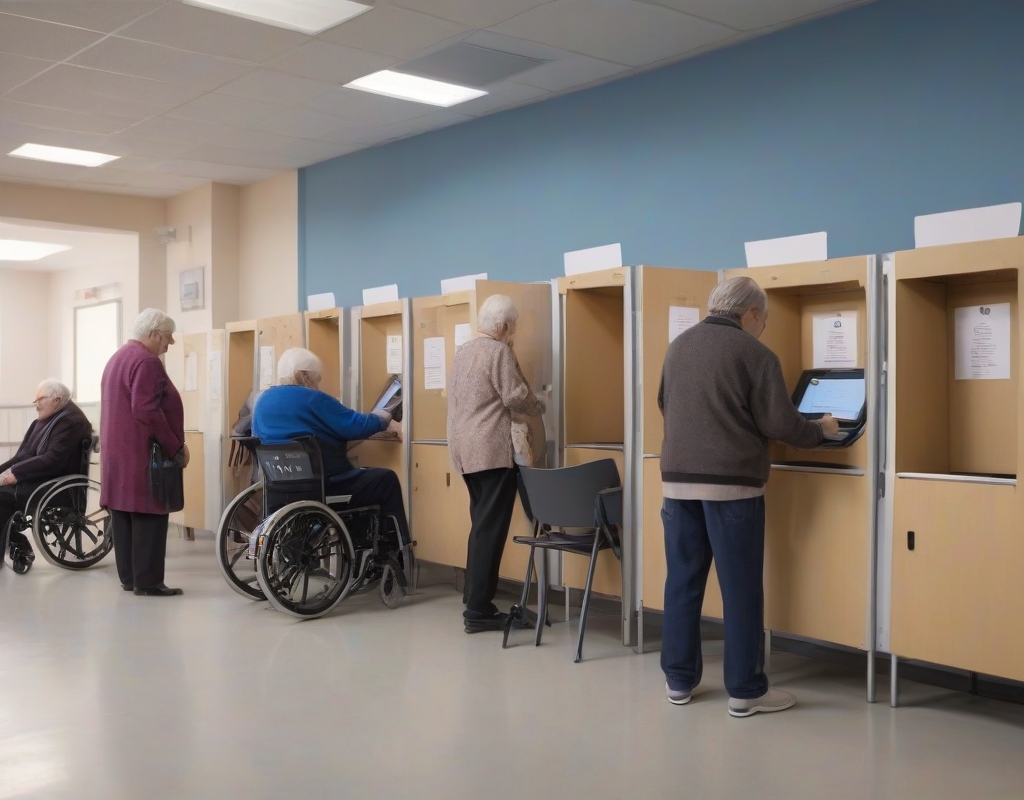In an increasingly aging society, ensuring that senior citizens with mental disabilities such as dementia and aphasia retain their right to vote is crucial. This demographic’s participation in elections debunks prevalent assumptions about their inability to engage effectively in electoral activities. By affirming the voting rights of seniors with cognitive challenges, democratic values of inclusiveness and equality are reinforced.
Voting systems are carefully tailored to accommodate the specific needs of senior citizens with mental disabilities, increasing accessibility and minimizing obstacles. These efforts are guided by legal regulations and facilitated by advancements in assistive technology and dedicated personnel training, ensuring that these individuals have a seamless voting experience.
**Technological and Human Support**
To cater to voters with cognitive impairments, various assistive technologies are implemented at polling stations. These include machines with audio ballots and touch screens, which help voters with visual and literacy challenges. Election staff are also specially trained to assist without influencing voter choice, making sure assistance is purely facilitative.
Polling sites themselves are mandated to be accessible under the Americans with Disabilities Act (ADA). This includes requisite adjustments such as ramps and clear signage to accommodate physical disabilities, ensuring that environmental barriers do not hinder voting.
**Legal Safeguards and Advocacy**
The legal system provides a robust framework to protect the voting rights of individuals with disabilities through the Voting Rights Act and the Help America Vote Act (HAVA). These laws require that every voter has the necessary accommodations to participate fully in the voting process.
Advocacy organizations play a pivotal role in these efforts. They create resources and run educational campaigns aimed at both enhancing understanding among voters with mental disabilities and tackling stigma. Organizations like the National Disability Rights Network (NDRN) and the American Association of People with Disabilities (AAPD) lead initiatives to enhance voter education and coordinate with election officials to refine voting practices.
**Addressing Misconceptions and Ensuring Integrity**
There are often concerns related to voter fraud and the manipulation of voters with disabilities. The electoral system, however, has robust checks and balances, including strict verification processes and identification requirements, which curb these risks. Monitoring at polling stations further ensures the integrity of the voting process.
Despite challenges, there has been significant historical progress regarding the voting rights of individuals with mental disabilities. Previous barriers rooted in discrimination and misunderstanding have been substantially diminished through legislative reforms and changes in societal attitudes.
**Cultural Reflection and the Importance of Inclusion**
Inclusive voting practices reflect a societal commitment to justice and equality. By enabling all eligible voters to participate in elections, the process becomes more legitimate and representative of the entire population. Eric Bridges, the executive director of the American Council of the Blind, discussed on NPR how inclusive voting “brings into focus the diverse voices that make up the electorate, ensuring that policies and leaders truly reflect the needs and interests of the entire population.”
This inclusivity confirms the fundamental democratic principle that every voice is equal in shaping societal progress, reinforcing the importance of each vote and each voter.
In conclusion, the voting process for senior citizens with mental disabilities integrates comprehensive support mechanisms including assistive technology, trained assistance, and stringent legal frameworks. These efforts ensure that they can vote confidently and independently. Advocacy groups remain crucial in educating and empowering this demographic, maintaining the fairness and transparency of elections.
Moving forward, embracing inclusive voting practices reaffirms a collective commitment to democracy, demonstrating a societal dedication to a just system where every individual’s voice is valued. By supporting the voting participation of senior citizens with mental disabilities, we strengthen a democratic tradition that respects and upholds the rights of all citizens.




